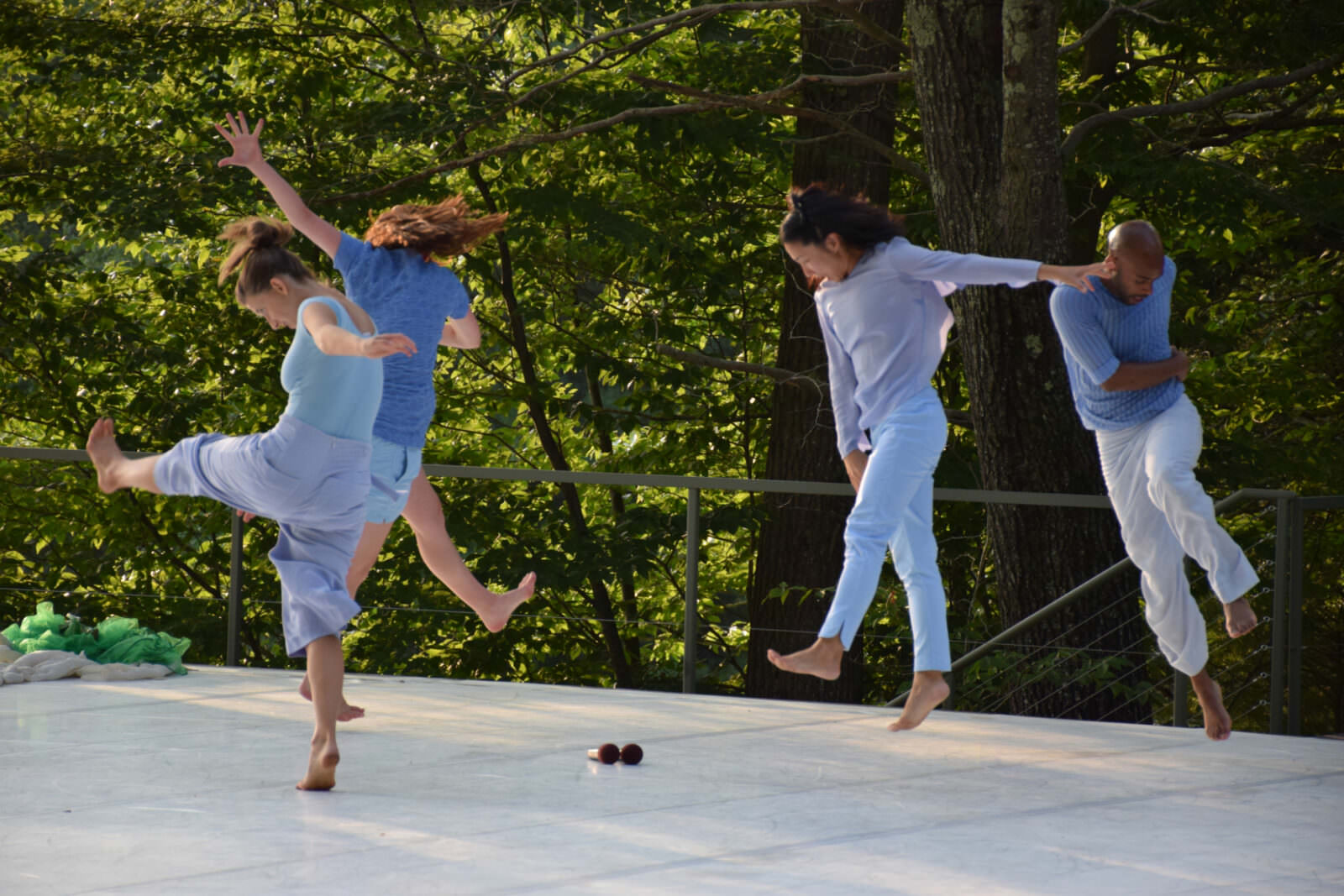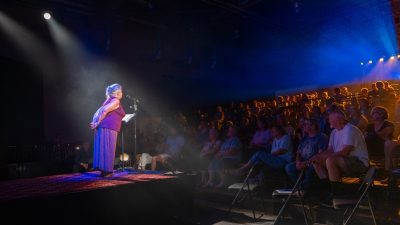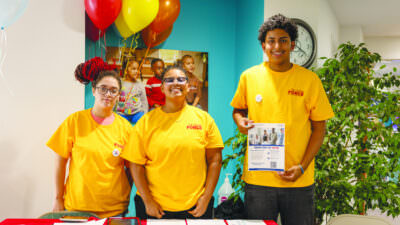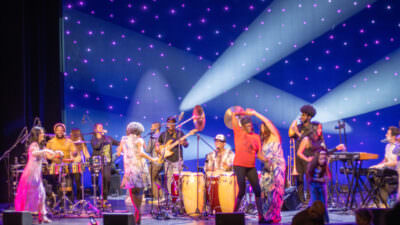Since 2017, Berkshire Taconic Community Foundation has invested grantmaking and staff resources into partnerships focused on three strategic priorities critical to the region’s future: community engagement, economic opportunity and educational attainment. Informed by research and community input, these priorities offer ways for philanthropy to make a measurable difference and for BTCF to partner with donors, volunteers and others to move us toward our vision—a region in which all residents have the opportunity for economic mobility and a high quality of life.
Our strategic priorities are building blocks for a stronger region. They help us sharpen our direction, listen to those most affected by the issues, identify and fund community projects, and create partnerships for lasting change. Here we present a brief report on our progress on our investments in community engagement.
OUR GOAL
By prioritizing community engagement, Berkshire Taconic aims to increase involvement, foster connections and harness the skills and expertise people can bring to organizations and communities.
OUR STRATEGIES
We have pursued several strategies to reach our goal.
The first focuses on board service and leadership. As a form of community engagement, nonprofit leadership is about service and giving back, as well as making sound decisions, tracking performance and ensuring accountability. Building on our decades of strengthening nonprofit leadership through workshops, trainings and scholarships for executive education, in the fall of 2018 we launched a daylong, multi-track Board Leadership Forum for the region’s nonprofit board members and executive directors. This was replicated as a virtual event in spring of 2021 in partnership with Essex County Community Foundation. We have also offered a series of half-day Board Leadership Seminars on critical topics such as creating more diverse and inclusive boards and nonprofits.
With support from the Barr Foundation, we have also developed the Arts Build Community (ABC) initiative, a partnership with Berkshire County arts and cultural nonprofit organizations and year-round residents to test new approaches to community engagement that use the proven power of the arts to build trust, cooperation and unity, while strengthening the arts as a sector. It also provides Arts Organization Support through grants and a peer learning and capacity building cohorts, and supports K-12 Arts Education with a blueprint from the Berkshire Cultural Assets Network that envisions access to our region's rich cultural assets and greater student learning and growth through the arts for every young person in Berkshire County. The ABC initiative has a special focus on reaching historically underrepresented or excluded audiences by funding projects that help develop more relevant programming and create more welcoming environments.
We matched these strategies with hoped-for results, and subsequent community impacts.
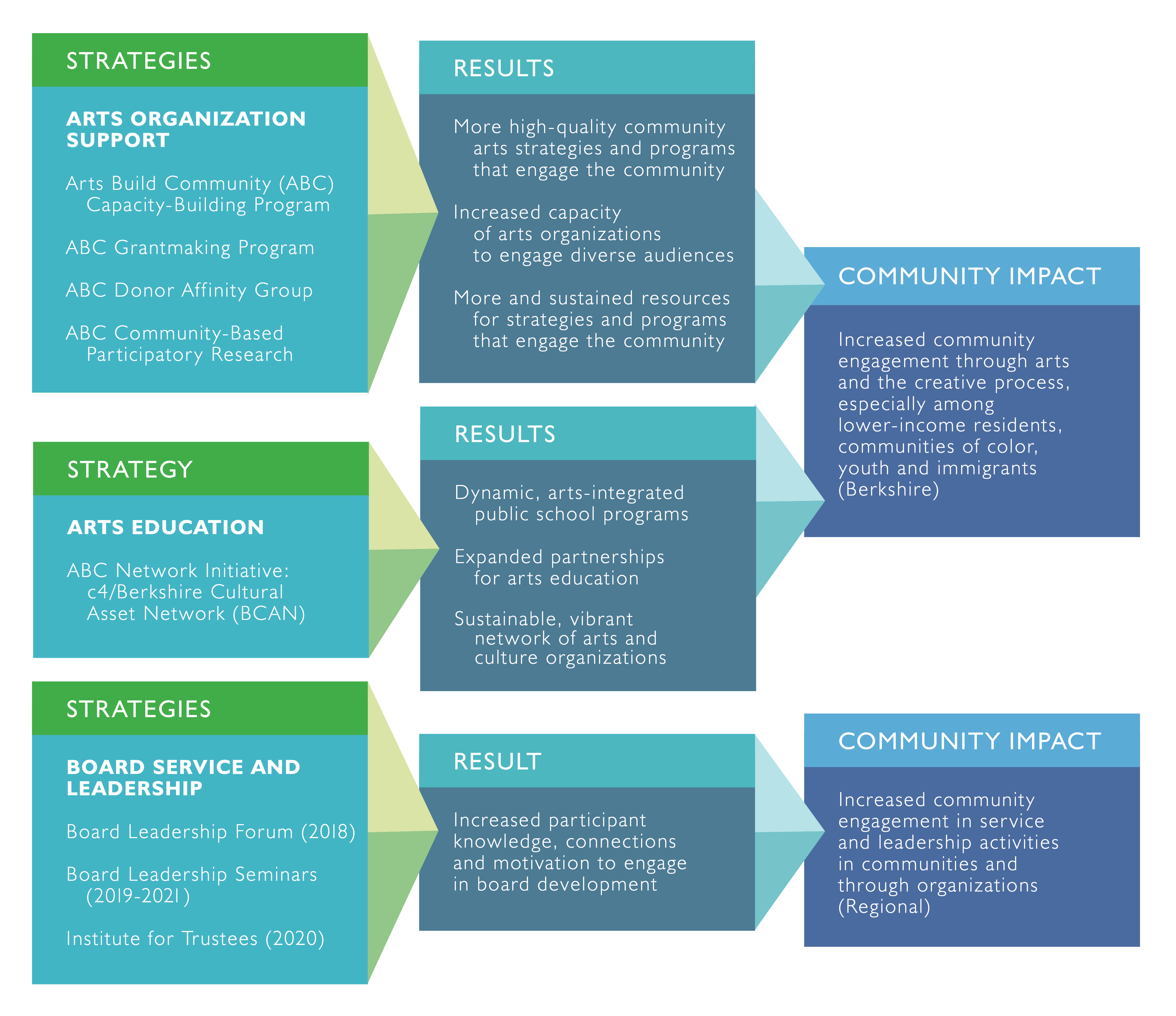
In addition, we devised a new strategy to address the forces and trends that have created distrust, division and disparities within our region. The Bridging Divides, Healing Communities initiative has included grant-funded projects and convening to bring together residents for the purpose of building and strengthening relationships, especially among people who may hold different views or come from different backgrounds. This regional approach includes grantmaking for virtual forums, arts and cultural activities and service projects, a four-part speaker series and a recently completed youth film challenge.
RESULTS TO DATE
Four years into implementation, we have a rich base of evaluation findings to draw on, as well as insights from interviews with grantees, donors, resident-researchers, area fund committee volunteers and other partners.
Here are some key results:
Board Service and Leadership Strategy: Two daylong conferences and three half-day seminars have increased the knowledge, connections and motivation to engage in board development of over 400 board volunteers and executive directors in our region, who represent nearly 200 organizations.
Arts Organization Support Strategy: BTCF has significantly helped nearly 60 arts and culture nonprofits and their partners to expand their knowledge, strategies and organizational capacities to more effectively serve their diverse communities with grants and other support totaling over $710,000. Grant-funded activities from these partners have so far engaged approximately 7,800 full-time residents from populations that have been historically underserved, including communities of color, immigrant communities, youth and residents who wish to participate in the arts but face barriers such as cost, transportation and social discomfort. BTCF donors have contributed $100,000 to these efforts to date.
Arts Education Strategy: BTCF’s support for the Berkshire Cultural Assets Network has produced a sustainable, vibrant network of arts and cultural organizations and expanded partnerships for arts education. There is also now a plan for dynamic, arts-integrated public school programs.
Bridging Divides, Healing Communities Strategy: We have seen early evidence that projects we funded have created new relationships and strengthened existing ones among people of different backgrounds, experiences or beliefs, forged connections around shared experiences, and brought residents together to pursue common goals regardless of their differences.
LESSONS LEARNED
Turning our strategies into action has produced important lessons and implications for us and our partners as we consider future activities. We share a few of them here:
- Community engagement investments must involve, reflect and respond to perspectives of residents from diverse communities. Our first step in our Arts Build Community (ABC) work was to engage resident-researchers to survey their communities, reaching 450 full-time residents. This process, known as community-based participatory research and commonly applied in health promotion, proved to be a timely, appropriate and effective methodology for the arts sector. Second, as resident-researchers are helping to influence our grantmaking decisions, we are continuing to build deeper relationships with residents from BIPOC communities and to enrich this grantmaking with cultural learnings.
- There is widespread desire to foster stronger connections through the arts and within the arts community—especially in healing from pandemic impacts. Opportunities abound for convening and connecting schools, arts organizations and artists to help the broader arts community feel less isolated and also to share and learn from each other.
- The ABC work is helping to support a shift from competition to collaboration in the arts and culture sector. Our grantmaking requiring that two or more organizations collaborate and our peer learning approach have affirmed the value of the partnerships and community-building underway among arts and culture nonprofits, and among them and other sectors. What's more, we can continue to disrupt patterns of zero-sum assumptions and dynamics through new donor and funder partnerships.
- BTCF can expand and diversify its programming, networks and partnerships even further, especially in reaching applicants and participants from organizations that are smaller, more rural and led by or serving BIPOC communities, youth and immigrants.
LOOKING AHEAD
In light of pandemic-related challenges to local residents, communities and economies, our long-term focus on these key priorities will continue, even as we remain a broad-based funder helping donors with varied interests who are committed to a range of causes.
To learn more or get involved in our work to increase community engagement, please contact Kara Mikulich, Chief Philanthropy Officer.

